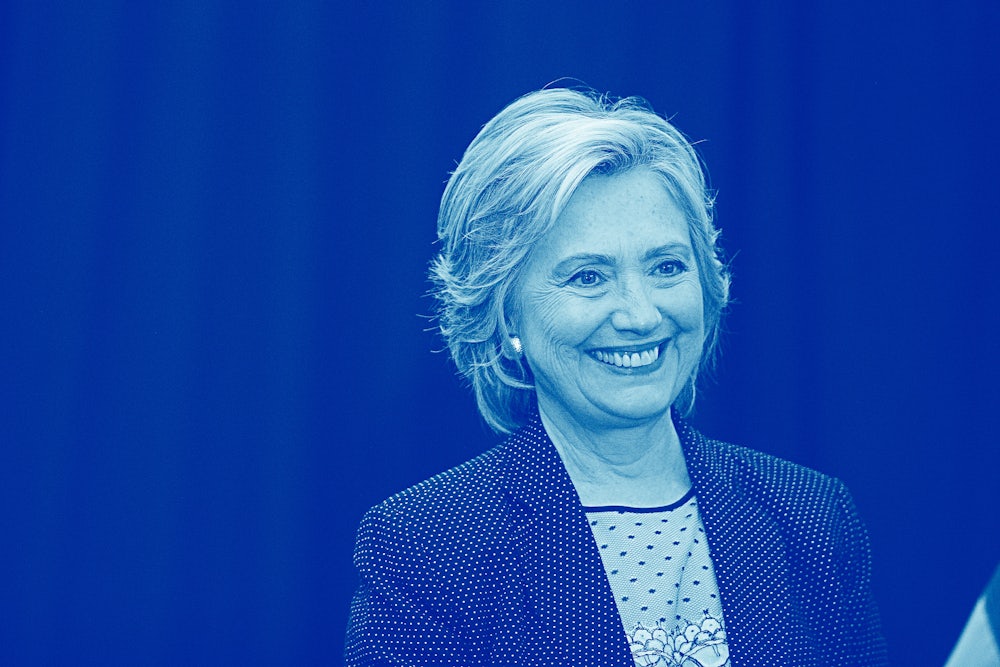For Team Hillary, each Democratic primary debate is one step closer to the general election. And the third Democratic debate, in New Hampshire on Saturday night, felt like another test run for Clinton’s economic message in the general, as she rolled out more business-friendly rhetoric while still trying to hold Wall Street at an arm’s length. She tried, moreover, to push a more positive spin on her vision for the country’s future, drawing a sharp contrast with Bernie Sanders’s populist fury.
Both the moderators from ABC News and the other candidates tried to press Clinton on her ties to Wall Street and big business. But rather than go on the defensive, Clinton turned those moments into an opportunity.
“Should corporate America love Hillary Clinton?” ABC’s David Muir asked her.
“Everybody should!” she replied, to big laughs from the audience.
It was the perfect segue for her message in the run-up to the general election: The call for an “inclusive economy” that helps lower- and middle-class families without excluding those who’ve already made it. “I want to be the president of the struggling, striving, and successful,” she explained.
Though she stressed the need “to make sure the wealthy pay their fair share,” she did her best to sound like a moderate when it came to the private sector. She paid extensive lip service to small business—the darling of mainstream American politics—describing her father not simply as a small businessman, but the owner of a “really small” business. Hillary even cheered on the corporate CEOs backing her campaign. “They are the kind of business leaders who understand that if we don’t get the American economy moving and growing, we’re not going to recognize our country and we’re not going to give our kids the same opportunities that we had,” she said.
Going into the general election, the risk for Clinton—and the Democratic Party as a whole—is that the left’s newfound love for economic populism ends up reinforcing a sense of pessimism and declinism about the American economy as a whole, which is more likely to benefit Republicans who can link that discontent with a Democratic White House. Clinton seems to recognize this. “People need to feel optimistic and confident, they need to believe their hard work is going to be rewarded,” she said. Clinton, moreover, went out of her way to praise businesses that were doing right by the American people. “We have to do more to incentivize profit sharing, like we see with Market Basket right here in New Hampshire and New England, where all of the employees get a chance to share in the profits,” she said.
Clinton still tried to keep her distance from Wall Street, pointing to anti-Hillary ads being bankrolled by “hedge fund billionaires … because they know I will go right after them.” (She didn’t mention, of course, the hedge fund billionaires bankrolling the pro-Hillary super PACs.) She claimed that her plan to reform Wall Street was even tougher than proposals from Sanders and Martin O’Malley, without specifically explaining why. But she ultimately seemed less concerned about reassuring the left about her progressive cred than about honing a message that will hold up against a Republican opponent.
